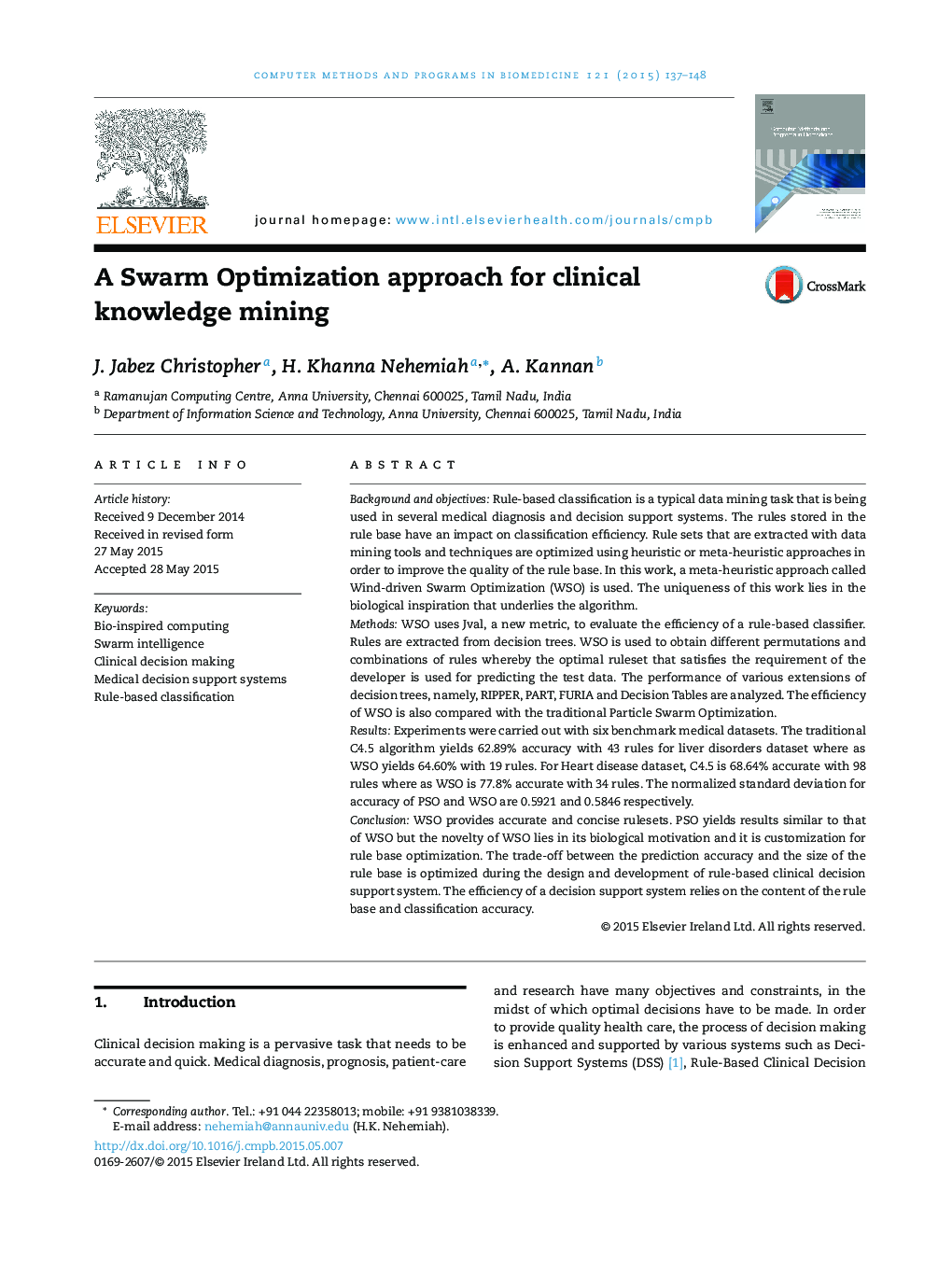| کد مقاله | کد نشریه | سال انتشار | مقاله انگلیسی | نسخه تمام متن |
|---|---|---|---|---|
| 469214 | 698298 | 2015 | 12 صفحه PDF | دانلود رایگان |
• Wind-driven Swarm Optimization (WSO) is used for optimizing the rule base of a Clinical Decision Support System.
• WSO is a bio-inspired approach inspired from the flight of birds.
• WSO uses Jval to evaluate the efficiency of a rule based CDSS.
• Experiments with six medical datasets show that WSO provides efficient rulesets.
• The novelty of WSO lies in its biological motivation and customization for rule base optimization.
Background and objectivesRule-based classification is a typical data mining task that is being used in several medical diagnosis and decision support systems. The rules stored in the rule base have an impact on classification efficiency. Rule sets that are extracted with data mining tools and techniques are optimized using heuristic or meta-heuristic approaches in order to improve the quality of the rule base. In this work, a meta-heuristic approach called Wind-driven Swarm Optimization (WSO) is used. The uniqueness of this work lies in the biological inspiration that underlies the algorithm.MethodsWSO uses Jval, a new metric, to evaluate the efficiency of a rule-based classifier. Rules are extracted from decision trees. WSO is used to obtain different permutations and combinations of rules whereby the optimal ruleset that satisfies the requirement of the developer is used for predicting the test data. The performance of various extensions of decision trees, namely, RIPPER, PART, FURIA and Decision Tables are analyzed. The efficiency of WSO is also compared with the traditional Particle Swarm Optimization.ResultsExperiments were carried out with six benchmark medical datasets. The traditional C4.5 algorithm yields 62.89% accuracy with 43 rules for liver disorders dataset where as WSO yields 64.60% with 19 rules. For Heart disease dataset, C4.5 is 68.64% accurate with 98 rules where as WSO is 77.8% accurate with 34 rules. The normalized standard deviation for accuracy of PSO and WSO are 0.5921 and 0.5846 respectively.ConclusionWSO provides accurate and concise rulesets. PSO yields results similar to that of WSO but the novelty of WSO lies in its biological motivation and it is customization for rule base optimization. The trade-off between the prediction accuracy and the size of the rule base is optimized during the design and development of rule-based clinical decision support system. The efficiency of a decision support system relies on the content of the rule base and classification accuracy.
Journal: Computer Methods and Programs in Biomedicine - Volume 121, Issue 3, October 2015, Pages 137–148
